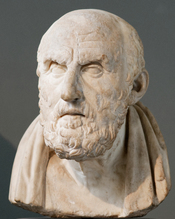Philosophy is a subject that often scares people. Those who philosophize are thought of as somewhat archaic, imagined as men with beards and dirty clothes, walking around or sitting, going about their daily tasks and thinking. Always thinking. Yet few realize how much philosophy there is in the world, and how it has influenced us. One of the most influential, even today, as its influences in Christianity show us, was Stoicism. Founded by Zeno of Citium, and later developed into a systematic body of doctrine, complete with a system of logic, epistemology, and cosmology, the Stoics were convinced that the universe lends itself to rational thought and explanation, and is a single organized structure in all its entirety. The core of Stoicism seems to lie in the Logos, which is what embodies the universe to make it a single, almost living, thing.
Stoicism in itself actually seems to be a very religious philosophy, though not in the contemporary sense.
Borrowing from Heraclitus, the Stoics identified the active principle of reality with the Logos, which could be translated as Reason - the faculty in man which enables him to think, to plan, and to speak (Long, 108) - Nature, or even God. Unlike later religions, however, Logos has no existence seperate from the rational order of the universe, and should not be thought of as the personal, all-powerful deity that was essential to later Western theology. Rather, Logos is literally the universe embodied. Any given man, at the root of his being, is part of the workings of a much larger scheme. It can be said that instead of man having influences on Nature, Nature influences man to the point of complete control. Remembering, now, that in Stoicism Nature is synonymous with God, we can take this to mean that...


